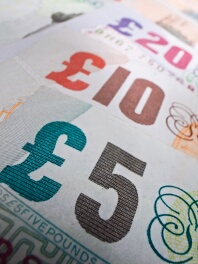This week’s Super Thursday turned out to be very negative for the Great Britain pound. As a result, the currency ended the week lower versus most of its major rivals, though not all of them.
It was expected that the so-called Super Thursday, the day with plenty of events on the economic calendar of Great Britain, should be very important to the pound. And indeed, it was, though not in a good way. Firstly, all macroeconomic reports released on Thursday were disappointing, making investors less confident in the health of the UK economy. Secondly, markets considered the policy statement of the Bank of England to be rather dovish, further eroding the appeal of the currency to speculators.
The New Zealand dollar was among the few currencies that were even weaker than the sterling. The reason for the poor performance was the same as for that of Britain’s currency — relatively dovish stance of the central bank.
GBP/USD slipped from 1.2982 to 1.2887 during the week. GBP/JPY opened at 146.61, rallied to the weekly high of 148.08 (the highest since December), but retreated to end trading at 146.06. EUR/GBP opened at 0.8486, slid to 0.8383, but bounced to close near the opening at 0.8476.
If you have any questions, comments or opinions regarding the Great Britain Pound,
feel free to post them using the commentary form below.



Be First to Comment